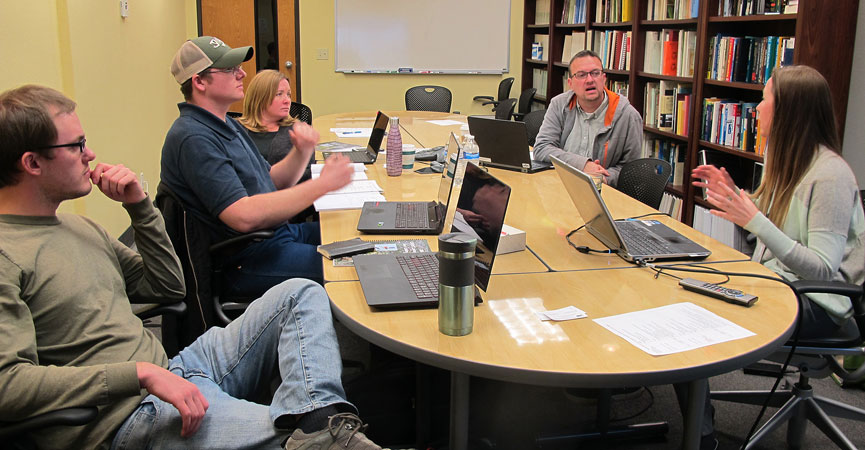
ITP conducts workshop to kick off development of invasive bee tool
ITP’s identification tools are a significant undertaking for the taxonomic expert tool authors. Tool development often takes multiple years, and tools have many pieces to them. To help facilitate timely delivery and useful products for PPQ, ITP offers each tool author team extensive training and support, including tool development workshops, to make sure author teams have the knowledge and resources they need to successfully complete these ambitious projects.
On January 25 and 26, ITP kicked off development of Invasive Bee ID with a workshop in Fort Collins for several members of the team (shown above). The Invasive Bee ID team is a cooperative effort among Utah State University, PPQ Field Operations, and USDA's Agricultural Research Service. The workshop included training on developing each part of an identification tool. From left to right in the photo are Skyler Burrows, Steven Price, and Dr. Lori Spears, all from Utah State University; Dr. Allan Smith-Pardo, national bee specialist for APHIS PPQ; and ITP's Amanda Redford.
Invasive Bee ID is a multi-year project focusing on invasive bees that compete with and displace important native pollinator species. Foraging and pollination activities of invasive bees can lead to spread of invasive plants, and pathogens and parasites introduced with them can be lethal to native species. The Invasive Bee ID tool is planned as a three-year project, and it will include fact sheets, interactive keys, and images. The first year will focus on global Megachilidae genera and native and invasive species of honey bees and carder bees; future years will add resources for mason bees, large carpenter bees, leafcutter bees, and small carpenter bees.
ITP will continue to support the Invasive Bee ID team throughout the three-year project.